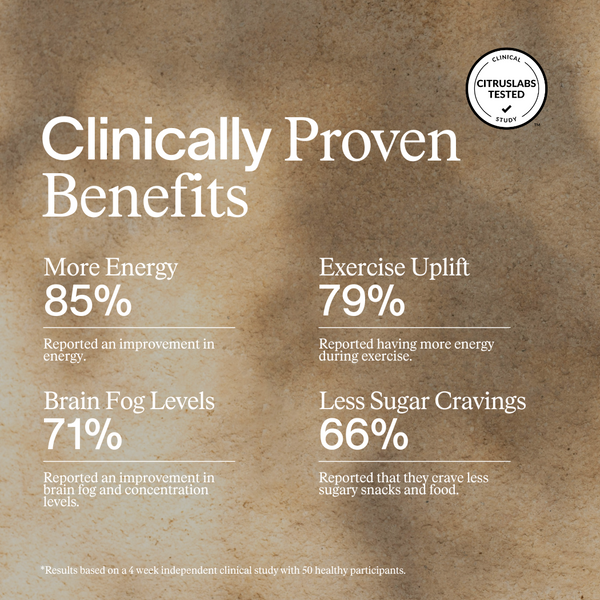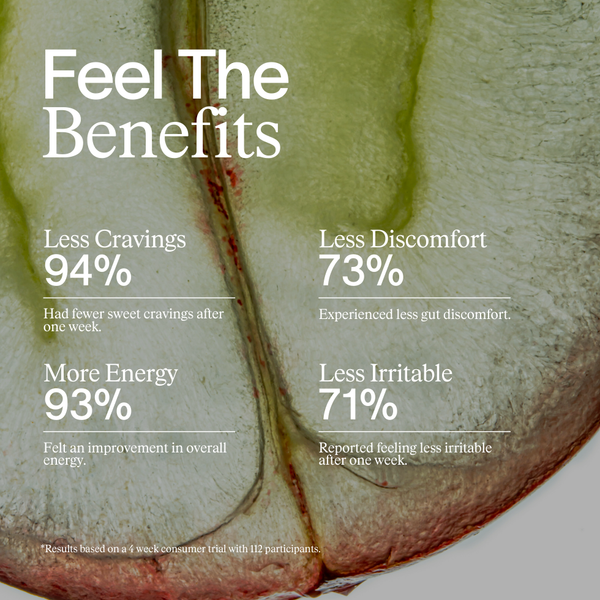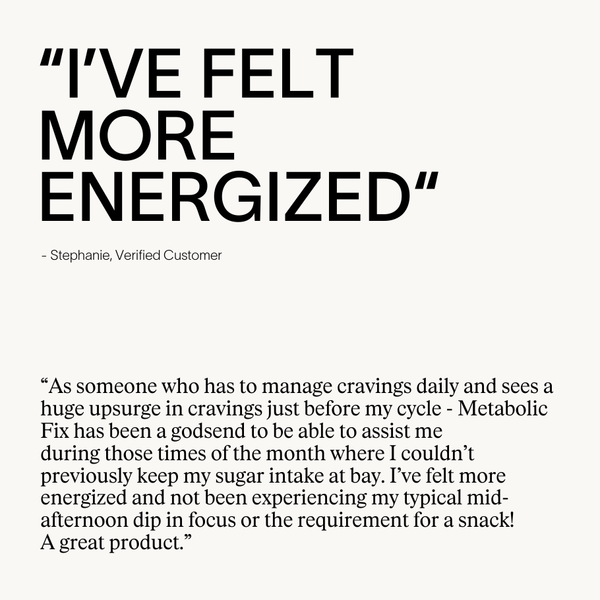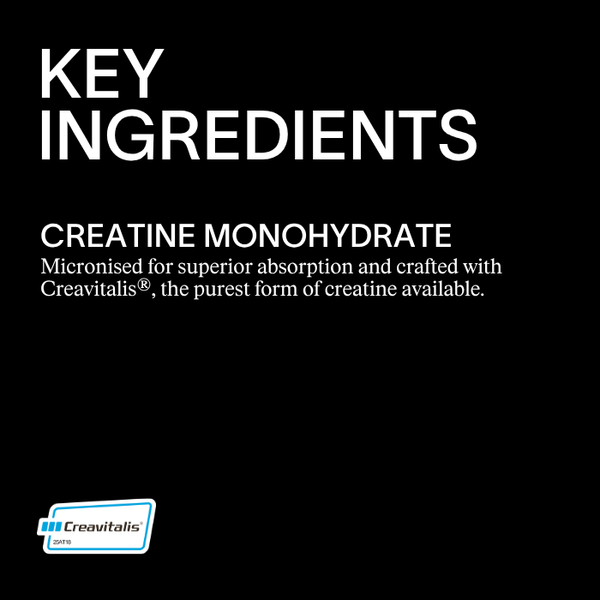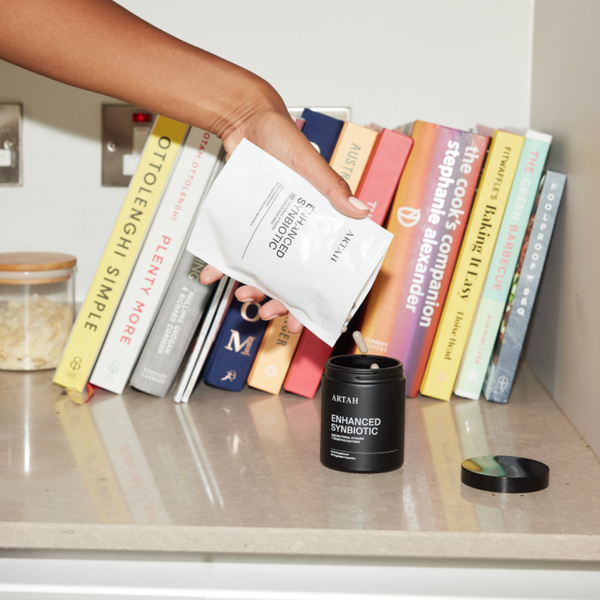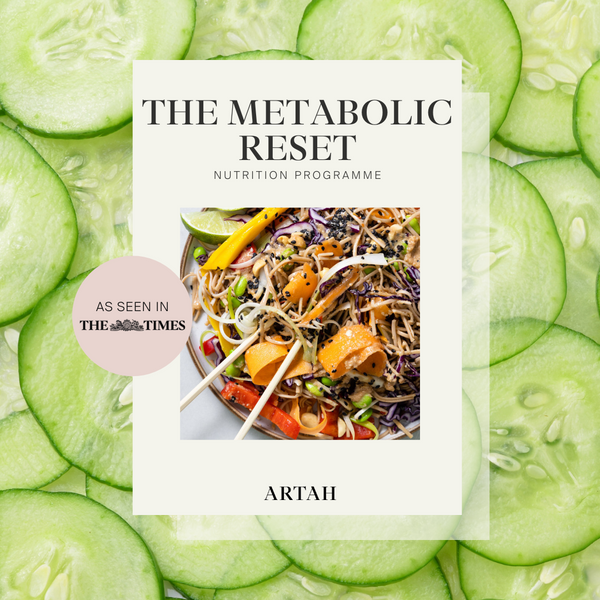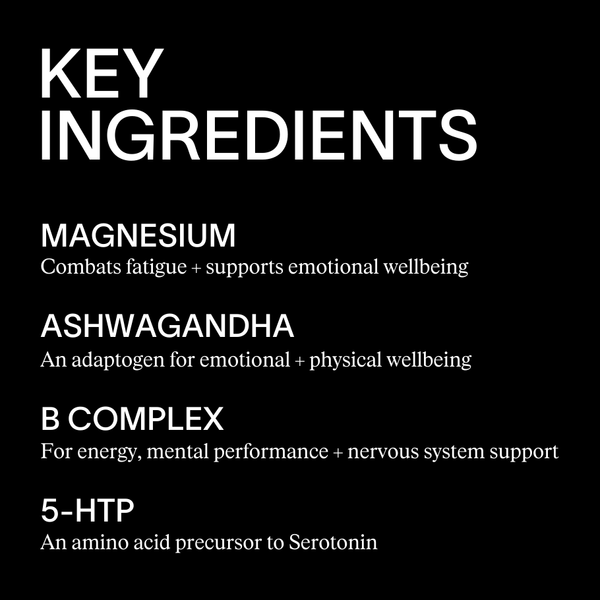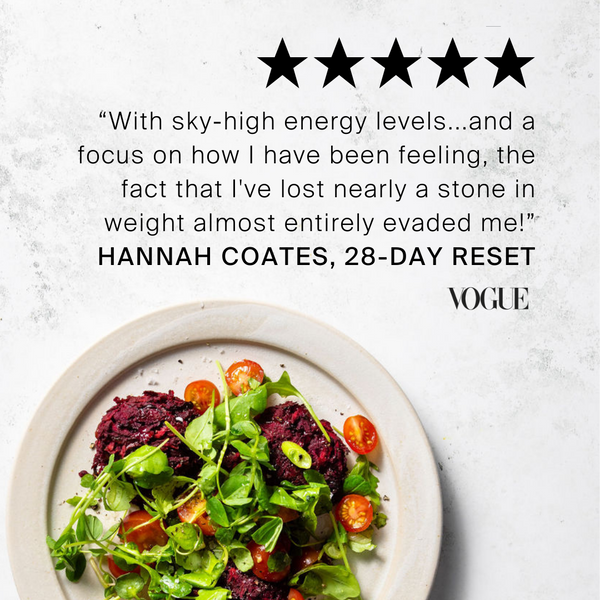Our metabolism is the engine that converts food into energy and powers our body. The faster it runs, the more efficiently the body burns calories, which in turn can contribute to improved weight management, energy levels and overall health. While genetics play a role in metabolic rate, there are plenty of everyday habits you can adopt to fire it up.
Let’s dive into five ways to support your metabolism everyday:
Start Your Day with a Protein-Rich Breakfast
What to eat:
Try eggs, Greek yoghurt, cottage cheese, scrambled tofu or a plant-based or organic whey protein shake.
Add Strength Training to Your Routine
What to do:
Aim to complete at least two strength training sessions per week. Compound exercises, like squats, deadlifts and lunges, target multiple muscle groups, maximise calorie burn and promote muscle growth. Reformer Pilates and Barre can also help too.
Sip Green Tea or Enjoy a Coffee
What to do:
Try drinking a cup of green tea or black coffee before your workout, or as part of your daily routine.
Incorporate High-Intensity Interval Training (HIIT)
What to do:
Try incorporating short bursts of intense exercise into your workout, such as sprint intervals or circuit training. You only need about 15–20 minutes to see benefits, making HIIT a time-efficient option.
Get Enough Sleep
What to do:
Aim for 7-9 hours of quality sleep to help regulate appetite and support healthy metabolic function. Prioritise sleep hygiene — maintain a regular sleep schedule, limit screen time before bed, and create a calming nighttime routine to ensure restful sleep.
Disclaimer: The information presented in this article is for educational purposes only and is not intended to diagnose, prevent, or treat any medical or psychological conditions. The information is not intended as medical advice, nor should it replace the advice from a doctor or qualified healthcare professional. Please do not stop, adjust, or modify your dose of any prescribed medications without the direct supervision of your healthcare practitioner.
References:
-
Leidy, H. J., Clifton, P. M., Astrup, A., Wycherley, T. P., Westerterp-Plantenga, M. S., Luscombe-Marsh, N. D., Woods, S. C., & Mattes, R. D. (2015). The role of protein in weight loss and maintenance. In American Journal of Clinical Nutrition(Vol. 101, Issue 6, pp. 1320S-1329S). American Society for Nutrition. https://doi.org/10.3945/ajcn.114.084038
-
Westcott WL. Resistance training is medicine: effects of strength training on health. Curr Sports Med Rep. 2012 Jul-Aug;11(4):209-16. doi: 10.1249/JSR.0b013e31825dabb8. PMID: 22777332.
-
Jurgens TM, Whelan AM, Killian L, Doucette S, Kirk S, Foy E. Green tea for weight loss and weight maintenance in overweight or obese adults. Cochrane Database Syst Rev. 2012 Dec 12;12(12):CD008650. doi: 10.1002/14651858.CD008650.pub2. PMID: 23235664; PMCID: PMC8406948.
-
Khodadadi F, Bagheri R, Negaresh R, Moradi S, Nordvall M, Camera DM, Wong A, Suzuki K. The Effect of High-Intensity Interval Training Type on Body Fat Percentage, Fat and Fat-Free Mass: A Systematic Review and Meta-Analysis of Randomized Clinical Trials. J Clin Med. 2023 Mar 15;12(6):2291. doi: 10.3390/jcm12062291. PMID: 36983289; PMCID: PMC10054577.
-
Sharma S, Kavuru M. Sleep and metabolism: an overview. Int J Endocrinol. 2010;2010:270832. doi: 10.1155/2010/270832. Epub 2010 Aug 2. PMID: 20811596; PMCID: PMC2929498.

